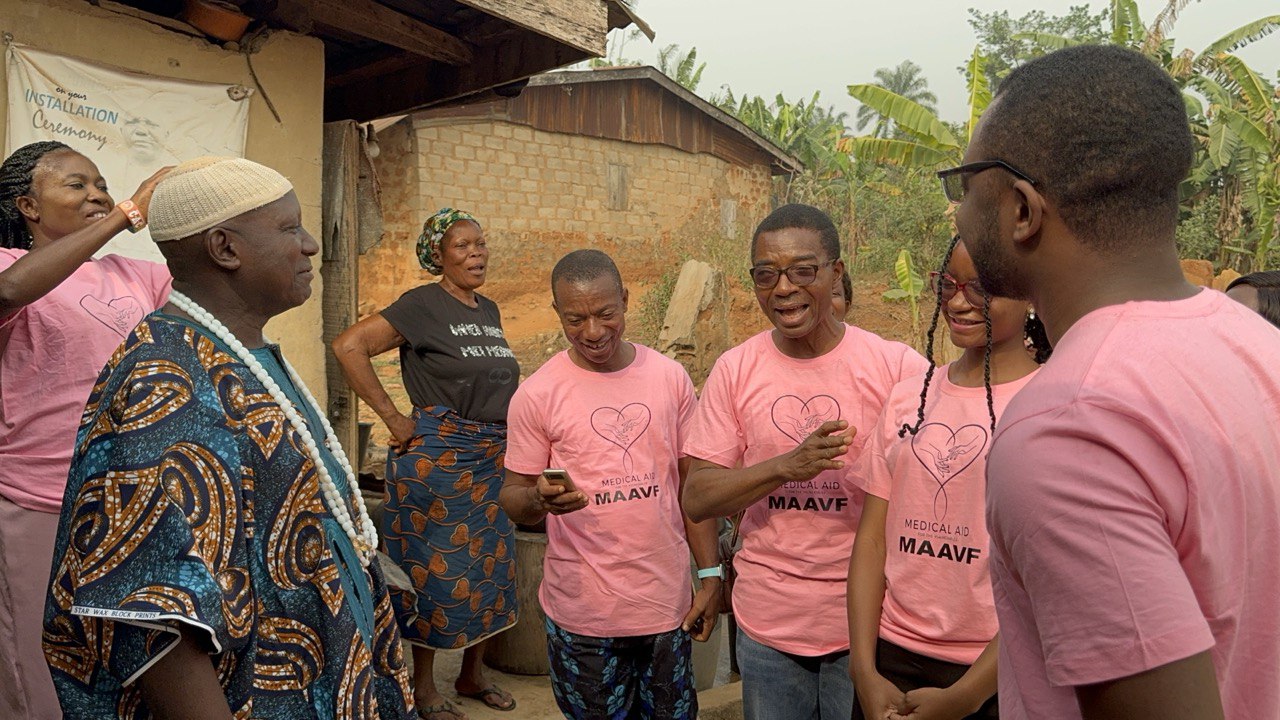Medical Outreach to Kajola village
Discover why Kajola village holds a special place in our hearts.
Our recent visit to Kajola village held a profound significance for both of the co-founders of the Medical Aid for the Vulnerable Foundation. Kajola holds a special place in our hearts as our late grandfather lived here for five decades. He served as the esteemed headmaster at Ebenezer Anglican Primary School and concurrently held the role of a catechist in the Ebenezer Anglican Church from 1955 to 2005. It was not just a routine medical outreach for us; it was a return to a place that resonates with our family history and community ties. The familial ties to Kajola added a layer of personal commitment to our mission.
Months before the outreach, Mr. Ebenezer Akinbogun, a key member of the foundation, played a crucial role in mobilizing and motivating potential participants while also setting up the site for the medical outreach.
The outreach aimed to educate Village residents about commonly overlooked illnesses, conduct screenings for hypertension and diabetes, provide counseling based on the results, and offer first aid medications. The turnout surpassed expectations, with over 80 participants instead of the anticipated 50, and our comprehensive preparations ensured we could assist almost everyone present.
Dive into the details of the health talk, screenings, and counseling sessions.
To commence the day, we followed the local customs by visiting the village’s Baale, Chief Ropo at his residence. This not only paid homage to the community leader but also served to announce our presence and explain the purpose of our outreach. The Baale warmly received us, appreciated our initiative, and even actively participated in the outreach activities.
The outreach began with an informative health talk, covering essential topics such as hypertension, diabetes, malaria, cholera, and guinea worm. The discussions included signs and symptoms, causes, and preventive measures. Our aim was to empower the community with knowledge about these health issues.
To ensure efficiency and orderliness, we set up multiple stations, each dedicated to specific screenings or tests planned for the day. The comprehensive process started with participant registration, followed by inquiries into demographics, diet, lifestyle, family history, and existing knowledge about diabetes and hypertension. Subsequently, we measured heights and weights to establish BMI, checked blood pressure, oxygen saturation, heart rates, and conducted blood glucose and malaria tests.
At the final station, we provided counseling based on individual test results. Participants who tested positive for malaria received free medications, while those presenting signs and symptoms of illness were given free first aid medications. As a gesture of appreciation for their participation, we offered free refreshments and handkerchiefs to those who completed all the stations.
Understand the financial aid provided and its impact on participants.
Recognizing the urgency of addressing alarming test results, we selected six participants with the most concerning test results and offered them N20,000 each. The initial N10,000 was given on the spot, with the remainder to be provided after they consulted a doctor and returned with prescriptions or evidence of a medical visit. This financial support aimed to assist them with hospital fees and prescription medications.
Unfortunately, despite our efforts and meticulous planning, the outreach exceeded its planned end time of 1 pm, leading to the inability to accommodate latecomers, many of whom were from surrounding villages, informed by their kinsmen about the outreach. However, the unexpected influx of participants towards the end of the outreach bodes well for future initiatives in the area. It highlights the potential for increased community engagement and participation, indicating a need for more hands, particularly additional medical personnel, in upcoming outreaches. The situation also underscores the possibility of extending outreach efforts to surrounding villages in the future.
To commemorate the successful outreach, we took photos with Baale and other participants, highlighting the collaborative effort between Medical Aid and Advocacy for the Vulnerable Foundation and the local community. These images, along with a copy of our health talk, can be found on our website.
Insights into water source inspection and health education provided.
As part of our commitment to community well-being, we also inspected two sources of drinking water in Kajola village. One source was observed to be unkempt and likely unfit for human consumption, while the other was cleaner and well-maintained. Encouragingly, it appeared that most people preferred the cleaner source. We commended this choice and reiterated the importance of boiling water before consumption, as emphasized in our health talk.
Our heartfelt gratitude goes out to the members and volunteers of Medical Aid and Advocacy for the Vulnerable Foundation, the Baale, and all participants who contributed to the resounding success of this outreach program. Together, we made a positive impact on the health and well-being of Kajola village, exemplifying the power of community collaboration in addressing healthcare needs.

